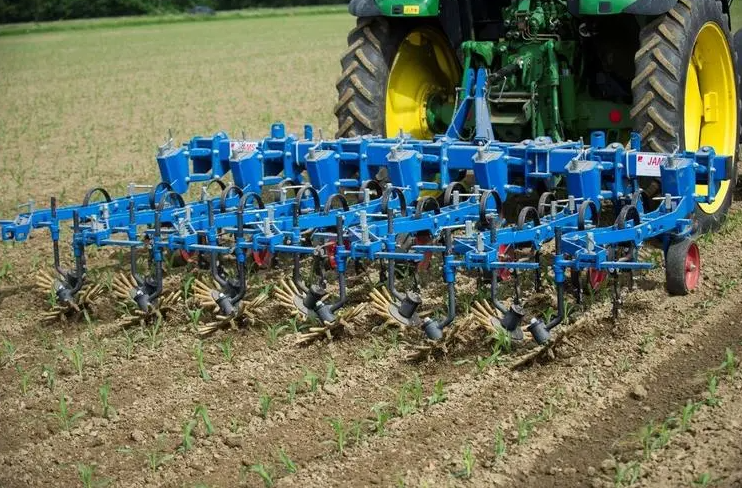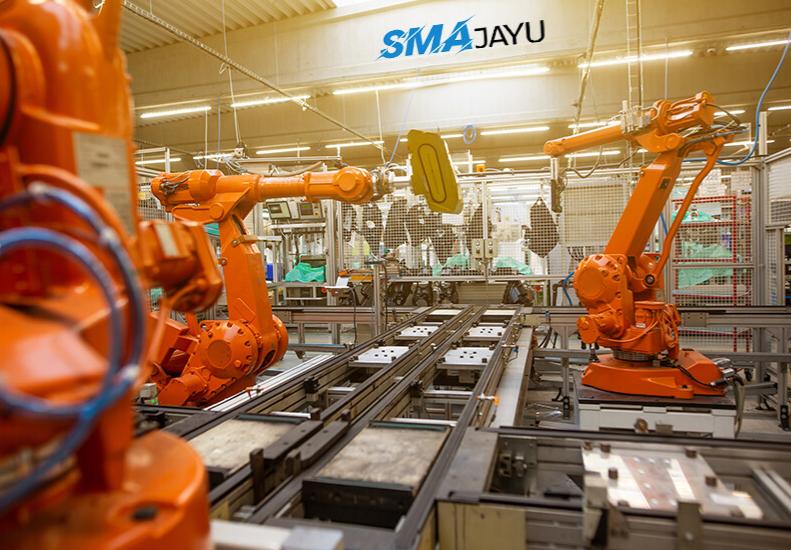In today's rapidly evolving agricultural landscape, the adoption of precision agriculture technologies has become paramount for farmers seeking to optimize their operations. At the forefront of this technological revolution are tractor GPS systems, which offer a myriad of benefits to farmers aiming to enhance precision, efficiency, and sustainability in their farming practices. As one of the leading manufacturers in this field, SMAJAYU provides cutting-edge tractor GPS systems tailored to meet the diverse needs of modern farmers.
Addressing Farming Needs
1.1 Identifying Common Challenges
Farmers worldwide face numerous challenges, ranging from ensuring precise crop placement to maximizing resource efficiency while maintaining sustainability. Traditional farming methods often fall short in addressing these challenges, leading to inefficiencies and increased costs.
1.2 Precision Agriculture Solutions
SMAJAYU's tractor GPS systems address these challenges head-on by harnessing the power of GPS technology. Through precise positioning and data-driven insights, these systems enable farmers to achieve unparalleled levels of precision in their farming operations. By accurately mapping fields, monitoring crop health, and optimizing inputs, farmers can maximize yields while minimizing waste.
Innovative Solutions Provided
2.1 Features and Functionalities
SMAJAYU's tractor GPS systems boast an array of innovative features designed to streamline farming practices and boost productivity. From auto-steering capabilities that minimize operator fatigue to boundary mapping functions that ensure precise field coverage, these systems empower farmers to work more efficiently and effectively.
2.2 Auto-Steering Technology
With auto-steering technology, farmers can automate the steering of their tractors, allowing for straighter rows and reduced overlap. This not only improves efficiency but also minimizes input costs by reducing wasted resources such as fuel, seed, and fertilizer.
2.3 Boundary Mapping
Boundary mapping functionality enables farmers to precisely define the boundaries of their fields, ensuring accurate coverage and minimizing the risk of crop damage from over-application of inputs. By creating virtual boundaries, farmers can optimize their operations and minimize waste.
2.4 Variable Rate Technology
SMAJAYU's tractor GPS systems also feature variable rate technology, allowing farmers to apply inputs such as seed, fertilizer, and pesticides at variable rates based on field conditions and crop requirements. This targeted approach maximizes resource efficiency and minimizes environmental impact, ultimately leading to more sustainable farming practices.
Advantages of GPS Systems
3.1 Increased Productivity
The adoption of GPS systems in agriculture has revolutionized the way farmers operate, leading to a significant increase in productivity. By providing precise positioning data, SMAJAYU's tractor GPS systems enable farmers to optimize their field operations, such as planting, spraying, and harvesting. With greater accuracy and efficiency, farmers can accomplish more in less time, ultimately boosting overall productivity.
3.2 Reduced Input Costs
One of the most compelling advantages of GPS systems for farmers is the ability to reduce input costs. By ensuring precise application of inputs such as seed, fertilizer, and pesticides, SMAJAYU's tractor GPS systems minimize waste and over-application. This not only saves farmers money but also reduces the environmental impact associated with excessive chemical use, leading to more sustainable farming practices.
3.3 Optimized Resource Usage
SMAJAYU's tractor GPS systems empower farmers to optimize their use of resources such as water, fuel, and labor. By accurately mapping fields and monitoring crop health, farmers can make data-driven decisions to ensure resources are allocated efficiently. Whether it's adjusting irrigation schedules based on soil moisture levels or minimizing fuel consumption through optimized route planning, GPS systems play a crucial role in maximizing resource usage on the farm.
3.4 Environmental Benefits
In addition to improving productivity and reducing costs, GPS systems also offer significant environmental benefits. By minimizing chemical runoff and reducing greenhouse gas emissions through optimized field operations, SMAJAYU's tractor GPS systems contribute to a more sustainable agricultural industry. By choosing GPS technology, farmers can help protect natural resources and preserve the environment for future generations.

Tailoring to Diverse Tractor Needs
4.1 Compatibility
SMAJAYU's tractor GPS systems are designed to be compatible with a wide range of tractors, ensuring seamless integration with existing farm equipment. Whether you have a small-scale operation with compact tractors or a large-scale farm with powerful machines, SMAJAYU's GPS systems can be tailored to meet your specific needs.
4.2 Scalability
From small family farms to large commercial operations, SMAJAYU's tractor GPS systems are scalable to accommodate farms of all sizes. Whether you're managing a few acres of land or thousands, our systems can be customized to scale with your operation, ensuring you have the tools you need to succeed, no matter the size of your farm.
4.3 Customization Options
Every farm is unique, with its own set of challenges and requirements. That's why SMAJAYU offers a wide range of customization options for our tractor GPS systems. Whether you need additional features for precision planting, variable rate application, or livestock management, our team can work with you to tailor a solution that meets your specific needs and maximizes your farm's potential.
About SMAJAYU
5.1 Experience in Agricultural Technology
Founded in 2009, SMAJAYU has over a decade of experience in developing innovative solutions for the agricultural industry. Over the years, they have witnessed firsthand the transformation of farming practices from traditional methods to smart, technology-driven approaches. This deep understanding of the sector enables SMAJAYU to anticipate the needs of farmers and deliver solutions that address their most pressing challenges.
5.2 Empowering Intelligent Agriculture
SMAJAYU is dedicated to empowering intelligent agriculture through the use of advanced technologies. Their high-precision and affordable RTK GNSS system has revolutionized farming practices by providing centimeter-level accuracy in field operations. Integrated with GPS technology, SMAJAYU's agriculture guidance and auto-steer systems enable farmers to achieve unparalleled precision in tasks such as planting, spraying, and harvesting.
5.3 Flexible and User-Friendly Design
Recognizing the diverse needs of farmers, SMAJAYU offers variable accessories that allow their GPS systems to be used with a wide range of farm vehicles. Whether it's a compact tractor or a larger agricultural machine, SMAJAYU's systems can be easily integrated for seamless operation. Additionally, their user-friendly software interface makes it simple for farmers to control field operations and optimize their workflows with ease.

5.4 Best Self-Driving Systems for Small Farms
SMAJAYU's commitment to advancing farming technology is evident in its dedication to providing the best self-driving systems for small farms. By combining high-precision GPS technology with user-friendly design, SMAJAYU's systems empower small-scale farmers to improve efficiency, reduce input costs, and increase farm income. With SMAJAYU's support, small farms can harness the power of intelligent agriculture to compete on a larger scale and thrive in today's competitive market.
Conclusion
As the demand for sustainable and efficient farming practices continues to grow, the importance of precision agriculture technologies such as tractor GPS systems cannot be overstated. By harnessing the power of GPS technology, SMAJAYU's tractor GPS systems empower farmers to overcome common challenges and optimize their operations for increased productivity and sustainability. With innovative features such as auto-steering, boundary mapping, and variable rate technology, these systems represent the future of modern farming. Embracing these technologies is not only beneficial for farmers but also for the environment, ensuring a more sustainable future for generations to come.


